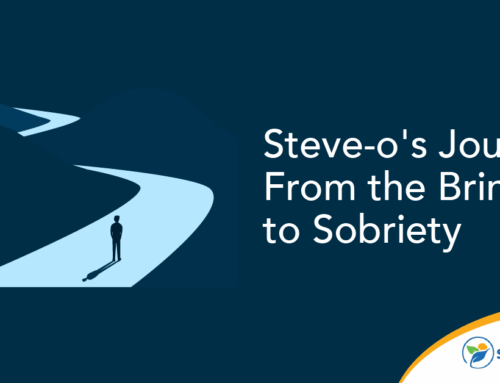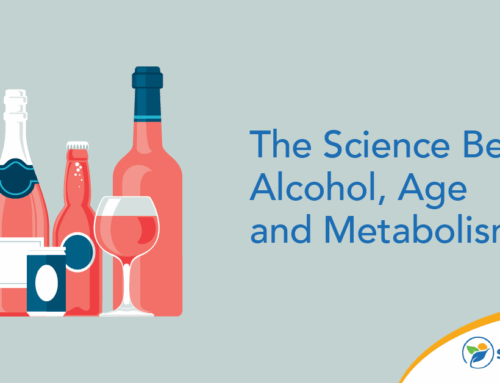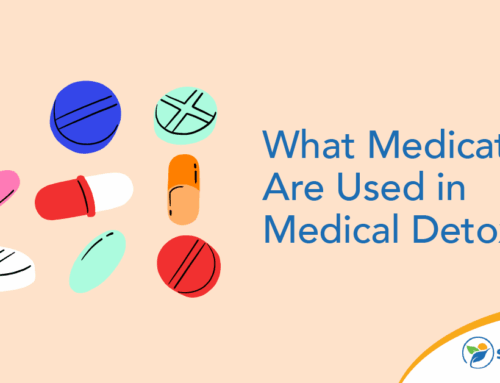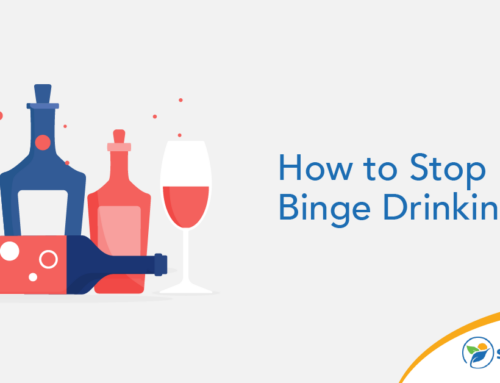Alcohol is a socially accepted drug in many American communities. Most people don’t bat an eye when someone drinks a beer after work, accompanies their dinner with a glass of wine or uses brandy as a nightcap. Alcohol is also a common social lubricant offered at parties, weddings and even business events. Drinking alcohol is commonplace, with data on alcohol use showing that over 78% of Americans aged 12 and older have drunk alcohol at some point in their lives.
The wide acceptance of alcohol belies the fact that it’s a mind-altering substance that affects how you think, feel and behave. Many people know alcohol impairs judgment and makes people behave in ways they otherwise wouldn’t. You probably have anecdotes about an intern who drank too much at the office Christmas party and got overly familiar with the boss or about an uncle who mistook the kitchen sink for a urinal while drunk.
If you’ve also acted inappropriately while drunk, you may wonder, “Why does alcohol lower inhibitions?” Follow along as the addiction experts at Sunlight Recovery explain why alcohol causes lowered inhibitions that lead to unusual behavior patterns. You’ll also find tips to help you keep your dignity (and your job) next time you drink.
Understanding the Influence of Alcohol
Alcohol contains an ingredient called ethanol, a chemical that travels through the bloodstream and reaches the brain and central nervous system (CNS) within 5 minutes of drinking. Ethanol attaches itself to areas in the brain responsible for releasing a hormone that stimulates thoughts and actions and depresses or slows the rate at which your brain releases this hormone. As a result, you may start to think and speak more slowly than usual within 10 minutes of taking your first drink.
Drinking more alcohol causes ethanol to stimulate the production of dopamine in the brain. This feel-good hormone produces a euphoric sensation, making you feel relaxed and more confident. Taking just two drinks during a social event can transform you from a cocooned caterpillar to a social butterfly who can easily interact and speak with friends and strangers.
If you continue to drink alcohol, your body stops being able to break down and eliminate ethanol through sweat and urine. As a result, alcohol affects the areas of your brain responsible for self-control, decision-making, memory and movement.
Impaired Decision-Making
Alcohol impairs the brain’s decision-making center: the frontal lobe. Once your frontal lobe is affected, your ability to regulate emotions is reduced. As a result, you may experience sharp mood swings, going from euphorically happy to deeply depressed within a few minutes.
An impaired frontal lobe can’t properly assess the pros and cons of different scenarios to make the right decision. It’s also unable to regulate thoughts and actions, causing you to make poor, impulsive decisions. If you find yourself hanging from the chandelier when drunk or driving while under the influence, it’s because the self-control mechanisms in your frontal lobe couldn’t keep up with the areas responsible for forming ideas and decision-making.
Effects on Perception
Alcohol’s inhibitory effect on brain hormones slows the rate at which you notice, process and respond to different stimuli. You may experience blurred vision or poor speech and hearing once your blood alcohol content exceeds the legal limit.
The drug also impairs the part of your brain responsible for controlling bodily functions such as heart rate and temperature. Consequently, you may not notice sensations such as discomfort or extreme temperatures. If you cut yourself while drunk, you might feel the pain only after your blood alcohol level drops.
Alcohol impacts the cerebellum, the part of your brain responsible for controlling motor skills such as sitting, standing and walking. Drunk people usually can’t sit without slouching, stand upright or walk in a straight line. This lack of coordination makes it difficult to respond promptly to serious situations, such as moving away when something falls from the ceiling.
Driving under the influence is dangerous since your impaired decision-making, perception and motor skills reduce your ability to see where you’re going, remember road rules and respond on time to obstacles on the road.
The Impact of Lowered Inhibitions on Social Interactions
While the reduced inhibitions alcohol initially induces can make you the life of the party, continued drinking affects how you speak, interpret information and respond to the people around you. High blood alcohol content causes slurred speech, making it difficult for people to understand you. It also causes confusion, which lowers your ability to keep up with names, faces and conversations. An impaired hippocampus can’t obtain and retain new information, which is why your sober self may not remember the embarrassing things your drunk self said and did.
An impaired perception can lead you to misinterpret what people are saying or how they behave toward you. This, coupled with reduced emotional regulation and impulse control, can make you become aggressive and start a fight. It’s no wonder that alcohol is involved in 86% of homicides and up to 42% of violent crimes.
Practical Tips for Responsible Drinking
You don’t have to stop having a drink with your meals or drinking while out with friends if you know how to drink responsibly. This means drinking within your limits so you don’t endanger yourself or others while under the influence.
- The Centers for Disease Control and Prevention (CDC) recommends a maximum of two drinks daily for adult males and one drink or less daily for adult females. Drinking below the recommended limit ensures you have a good time without becoming intoxicated.
- Eating before having alcohol reduces the rate at which alcohol enters the bloodstream, allowing you to maintain low blood alcohol content for longer. Take in a lot of water between drinks to reduce the concentration of alcohol in your bloodstream.
- Many people find drinking during social events instead of alone in the house forces them to remain conscious of how much alcohol they consume. If you drink while out with friends, assign a designated driver or call a taxi instead of driving home, since your impaired decision-making abilities can cause fatal accidents.
If applying these measures doesn’t stop you from drinking too much alcohol, have the self-awareness to completely abstain from drinking, whether alone or socially. You don’t need the lowered inhibitions caused by alcohol to be confident or outgoing, and there are numerous nonalcoholic beverages and cocktails to enjoy when you want to have fun.
Sometimes, you may need assistance to get your drinking under control before it permanently affects your health, relationships and livelihood. Contact the addiction experts at Sunlight Recovery to learn which of our alcohol addiction treatment programs can help you achieve and maintain long-term sobriety.







